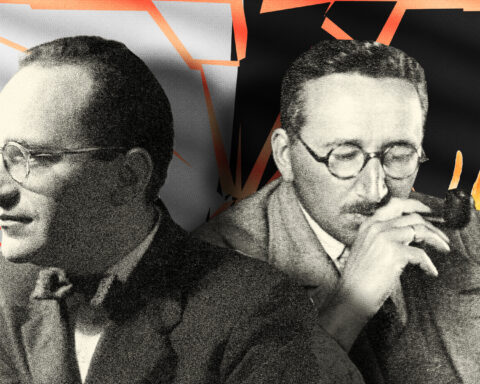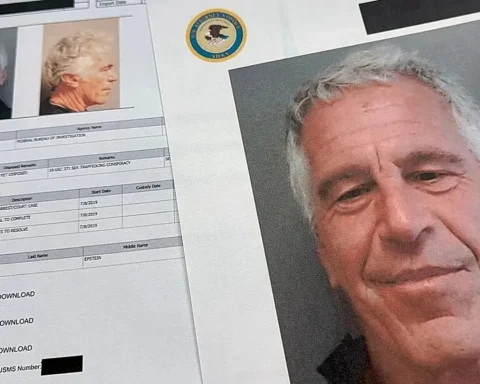According to Max Weber’s conclusion summarizing the defining transformations of the 18th and 19th centuries, the birth of modern capitalism began with the separation of the enterprise from the household. This marked the beginning of the great rupture within the major transformation that shaped modern society. The 19th century was an era defined by struggles that led to the widespread emergence of trade unions and efforts to regulate capitalism’s ruthless pursuit of profit, which had turned workers’ lives into misery. Through the intervention of the state and legal system, child labor was banned, working hours were reduced, and regulations on workplace safety and hygiene were introduced. Attempts were made to protect the weak against the strong. These events constituted the first act of the great rupture.
The second act of the great rupture and the global elite
“The process we are currently going through is the second act of the ‘Great Rupture.’ Capital has succeeded in escaping from the much more restrictive, burdensome, and uncomfortable framework of the legal and moral guardianship imposed by the nation-state to a new ‘neutral zone’—a domain where, if rules exist at all, they are minimal and do not restrict, limit, or obstruct commercial ventures. The new space to which (global) businesses are now migrating is, when evaluated by the standards of the past two centuries, truly a transboundary zone.
History is repeating itself, but this time on a much larger scale. The misery and devastation that are likely to arise and expand as the business world frees itself from political and moral oversight are also repeating themselves. Once again, the business world has freed itself from local bonds—this time not from households, but from nation-states. Once again, it has created a ‘transnational zone’ where it can establish its own rules almost entirely freely.
It appears that the current old regime, represented by sovereign nation-states, is incapable—not just of stopping but even of slowing down—the business world as it flees from democratic oversight.”
(Society Under Siege, trans. A. E. Pilgir, Ayrıntı Publishing, 2018)
When Zygmunt Bauman wrote Society Under Siege in 2002, he argued that the nation-state was in a difficult position vis-à-vis the business world, being squeezed from both above and below. He stated:
“As Masao Miyoshi noted after reviewing recent global developments, nation-states are ‘no longer functional; they have been completely taken over by transnational corporations.’
Transnational corporations, in turn, have ‘shed their nationalist burdens… They travel globally, communicate, and transfer people, plants, information, technology, money, and resources. Their operations transcend distance. They continue to be foreigners and outsiders everywhere, bound only to the clubs to which they belong…
The power to create, destroy, alter, and shape the conditions that affect human life has escaped the grasp of nation-states, moving beyond the limits and reach of state sovereignty. It is now locked inside the secure briefcases of a new elite group that moves freely, crosses borders, and is transnational—or, as they flatteringly call themselves, ‘multicultural.’”
(Society Under Siege, pp. 318–319)
Bauman’s observations about the new global elite are also highly instructive:
“The new global elite are generally in a state of flux—physically, and always spiritually—skiing and surfing… Like their owners, they too are beyond borders. The global elite mostly encounter and communicate with one another.
Multiculturalism, pluralism, hybridity, and cosmopolitanism are the glittering terms they use to describe this strange experience of diversity—terms that make it seem like countless tiny scratches on the seamless surface of a shared lifestyle, or mere accent and stylistic differences that any common language would naturally accept.
The imagination of the global elite is, like their lives and behaviors, fragmented and disconnected. Let alone being tied to local boundaries, or taking root, or being enclosed by them—they are not even connected to a specific piece of land. Immutability, resilience, greatness, rigidity, and permanence—all of the so-called superior virtues of the established mindset—have completely lost their value and have clearly taken on a negative connotation.
The devaluation of spatial relationships and the growing anger toward any kind of certainty manifests itself in a new distrust toward ‘society’—and in a growing resentment toward solutions that attempt to connect the individual and collective problems people experience to society as a whole, that emphasize society, or that are initiated by society.
Hopes and dreams have gone elsewhere; they have been told to stay away from the social harbors, and never to anchor there.”
(Society Under Siege, pp. 320–323)
Bauman’s striking remarks about the new global elite brilliantly explain why certain so-called intellectuals seem almost electrified when they hear words like “homeland,” “nation,” “Great Turkey,” or slogans such as “let’s unite, let’s be strong.”
These wise words also offer insights into why many of our youth—who have distanced themselves from these values with their collective and binding qualities, and instead identify with a brand, a celebrity, a cult, or a trendy lifestyle—might drift away from national and local sentiments and responsibilities.
Back to the bad old days and the womb
In 2002, Bauman was deeply pessimistic about the state’s position against corporations. In Retrotopia, the last book he wrote before his death in 2017, he concluded that the state—what he referred to as the “Leviathan”—had failed.
According to Bauman, the world now resembles the times that once inspired Thomas Hobbes to write Leviathan: an era in which humans were wolves to one another, the state was not yet visible, but its presence was desperately longed for.
One of the defining features of this pre-Leviathan period, Bauman argued, was the resurgence of tribalism. The other two were a return to the old days of inequality, and a symbolic return to the womb…
He explains it as follows:
Inequality is steadily increasing—both in capitalist countries and across the globe—regardless of the criteria used to measure it. The gap between the wealthiest 1% (some now speak of the top 0.5%, even the top 0.1%) and the rest of society is widening by the day. In the United States, the richest 160,000 households control as much capital as the poorest 145 million households. On a global scale, only 1% of total wealth is shared among 3.5 billion people—roughly the wealth held by just 85 individuals.
The once-fashionable notion of “social capital” in the marketplace of life politics has proven to be useless; self-righteousness, selfishness, and antisocial behavior now dominate.
In our world, where hope has been privatized and personal expectations have become detached from reality, people have begun to long for the past. Trapped in the grip of loneliness and the fear of loneliness, they wish to be effective narcissists—while simultaneously striving to render the narcissist before them powerless. They live under the illusion that anything is possible, yet with the constant fear that everything might be lost in an instant. Weary and disillusioned, they are sustained only by the dream of a nirvana once experienced in their mother’s womb…
The invisible trauma: The collapse of the socialist utopia
In such a world, those who stand for justice and society—while maintaining their critical stance—tend to side with the state as the representative of collective reason. Meanwhile, some Marxists, under the guise of opposing despotism, have drifted into aligning themselves with the class position of the monopolistic bourgeoisie—a tendency rooted in the very process Bauman attempts to describe.
However, we must also add to Bauman’s analysis the ideological disorientation that emerged within the Marxist Left following the collapse of the socialist bloc. Socialism, which had once been powerful enough to divide the world into two distinct camps, vanished almost overnight. Tragically, no one is seriously examining or discussing the traumatic nature of this colossal event, symbolized by the fall of the Berlin Wall.
It is as if an invisible force prevents people from reflecting on the trauma caused by the collapse of a utopia that at least one-third of humanity had invested its hopes in for seventy years. Everything is being reduced to a dismissive “it happened, and that’s that.”
From my own perspective, I have observed that those who believed in the survival of socialist utopias until the very last moment were shattered and scattered. I believe that the sudden disintegration of the socialist utopia played a major role in how some Marxists have been swept into the service of financial capital oligarchies, into ideological nonsense, and in how readily they have submitted to technology and the new world order that emerged alongside it.
The world is waiting for new revolutionaries!
What exciting times we are living in! Our world—and our country—bear an almost uncanny resemblance to a century ago. Whatever we think of brings to mind World War I, the October Revolution of 1917, and the Turkish War of Independence of 1919. The world longs for renewal, for a new discourse; and our state is in need of a complete restoration through an entirely new social contract.
The concepts of the old world no longer serve any purpose—they have been hollowed out, stripped of meaning, and rendered obsolete. The new world requires new concepts. Toshihiko Izutsu, for example, explains how the revelation of the Qur’an completely overturned the fundamental concepts of the Arabic language of its time. Just as the revolutionary pioneers of a century ago redefined terms such as “imperialism,” “state,” “revolution,” “republic,” and “democracy,” today’s thinkers who side with the new world must now roll up their sleeves.
The new world cannot be built using the vocabulary of the old. The foundational concepts of the past—such as “state,” “civil society,” and “revolution”—no longer have exact equivalents in today’s reality. For instance, if we still define “revolution” as “a civil war waged by the oppressed class against the ruling class for power,” we are doomed to fail from the very beginning. At most, revolution can mean the transformation of the overwhelming majority’s demands—those tired of injustice—into a peaceful political movement that the state embraces as its own rational course of action.
Likewise, we cannot move forward with the outdated understanding that treats “state,” “politics,” “public,” and “social” as one and the same. Each of these terms now belongs to distinctly different semantic fields.
Marx, who clearly fell into ethnocentrism in his treatment of Eastern societies and failed to perceive environmental issues in the slightest, was also mistaken in his evaluation of the state—just as he was in his understanding of religion. Lenin, in State and Revolution, took Marx’s flawed view of the state to the extreme, reducing it to a crude caricature as merely “the repressive apparatus of the ruling class,” and fell into economism in his analysis of imperialism.
The history of revolutions itself serves as a mirror in which we can clearly see the errors of both Marx and Lenin. In light of the collapse of the socialist utopia before our very eyes, revisiting and critically evaluating these foundational errors is the first responsibility of socialists—if indeed there are still those among them who truly wish to change the world in the name of justice.
Political theory debates have already familiarized us with a new reality: it is now entirely possible to hold views that were once seen as incompatible, such as being both a socialist and a liberal, or both religious and democratic. This is because the touchstone of a worldview is no longer political ideology itself. The real question is whether one sides with the collective wisdom of a society grounded in the pursuit of justice—or with the benevolent arms of economically dominant circles who assert their freedom through entrepreneurship.
As we have attempted to show above, with the support of Zygmunt Bauman’s analysis, it is clear that economic elites have begun to prevail over the state to a significant extent. Whatever our worldview may be, intellectuals must take a stand and make a conscious decision on this fundamental issue.
As I have tried to express in my writings in Kritik Bakış, this is how I see it.
The state is not the repressive apparatus of the ruling classes, but rather the concrete manifestation of the organizational capacity of a society’s collective moral consciousness. The state and civil society cannot be separated by clear-cut boundaries; just as the individual has a spirit and a mind that sustain their existence and shape their way of life, so too does society.
When the organizational capacities derived from the collective mind of society are able to structure the “legitimate authority to use power” in accordance with a definition of law and justice, the state comes into being. As long as the functioning of the state serves the interests of the general public, the commons, and the social realm, there should be no inherent conflict with economically dominant actors or with the free market.
However, when the relationship between state and society is weak (which is indeed the prevailing trend across the world today), it is also true that economically empowered classes tend to flee from the public and the social realm; injustice spreads, and “public justice” is gradually replaced by sentiments of “individual charity.”
Regardless of our political perspective, one of the urgent tasks before us today—if we are to imagine a viable vision of society—is to decide whether we are to ground ourselves in “justice,” symbolized by the modest, diligent, and fair civil servant, or in the “charity” sentiments of the economically dominant class. This has become the true touchstone of worldviews.
In this dilemma, my position is to stand with the state, the public, and the social. I support the restoration of the state in accordance with the evolving structure and demands of the society that originally shaped it. Ultimately, it will be the social dynamics themselves that determine what kind of restoration program will be enacted.
Of course, like many other moral virtues, I value charity as well; it is a fundamental force of solidarity that enables society to heal its own wounds. But it belongs to the individual and the social spheres—not to the state. The state cannot position itself within the framework of “charity”; its foundation must be the provision of justice.
Justice stands above all other virtues and belongs to the public domain. It is the direct responsibility of the state to ensure it. Without justice, other virtues cannot flourish, and in unjust hands, charity—like many other virtues—can easily be transformed into its opposite.
I defend the state ontologically, but this does not mean that I support every aspect of how the state functions. My conception of the state acknowledges that it is self-aware and self-legitimizing, and therefore allows room—when necessary—for a revolutionary uprising by the people to pursue its restoration.
However, if we artificially construct a rigid dichotomy between “state” and “civil society,” sanctify civil society, and attempt to wage war against the state in its name, then in the final analysis, we will end up doing nothing more than serving the interests of the economically dominant circles, who have never abandoned their goal of maximizing their own gains.
In doing so, we would also be attacking all the values that humanity has created through a spirit of solidarity.






